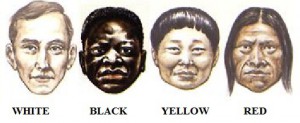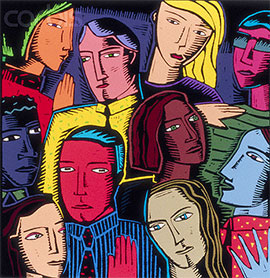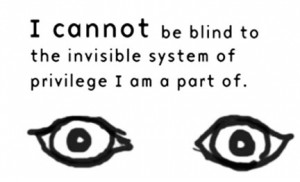Videos
A Conversation With Black Women on Race

Click Here to watch a short documentary in which black women talk about the challenges they face in society.
This latest installment of the NYTimes “Conversation on Race” Op-Doc video series highlights the negative emotional impact of racist attitudes on black women’s lives. Everyone we reached out to for this project was eager to tell her most intimate stories of pain and discrimination, from childhood, to work, to profiling by the police. We hope that in sharing them, we are helping to complicate the public representations of black women and girls — highlighting the unique challenges they face, as well as experiences and feelings that are universal.
From Harriet Tubman to Ida B. Wells to Dorothy Height, black women have been heavy presences in social justice movements throughout history. However, issues particular to these women are often relegated to secondary status in our collective consciousness. This seems to be changing. Recent events in Texas, Baltimore and Missouri show that black women are again in leadership roles, and are speaking out against the mistreatment they regularly experience. But in our nation’s current movement for social justice, women’s voices need a louder bullhorn. Conversations like the one we’re hoping to start with this Op-Doc are a first step to understanding, and to changing.
See below to watch the other installments of this Op-Docs series:
“A Conversation With Police on Race”
“A Conversation With My Black Son”
VIDEO: Key Points for Effective Racial Dialogue
VIDEO: Jane Elliot Brown-eye/Blue-eye Experiments
VIDEO: Race vs. State of Mind: Rachel Dolezal’s Thoughts on Whiteness
Rachel Dolezal recently visited a daytime talkshow called The Real, where she answered the hosts’ questions about her racial identity and her views on the definitions of whiteness and blackness.
VIDEO: How Racist Are You? with Jane Elliott
“For this Channel 4 documentary Jane Elliott, a controversial former schoolteacher from Ohio, is recreating the shocking exercise she used forty years ago to teach her nine year-old pupils about prejudice.
Elliott is asking thirty adult British volunteers – men and women of different ages and backgrounds – to experience inequality based on their eye color to show how susceptible we can all be to bigotry, and what it feels like to be on the other side of arbitrary discrimination.
Does Elliott’s exercise still have something to teach us four decades on and in a different country? Presented by Krishnan Guru-Murthy, the exercise is observed throughout by two expert psychologists, Prof Dominic Abrams and Dr Funké Baffour, who will be unpicking the behavior on display.”
Video: How racist are you?
Questions:
What do you think about this social experiment?
Are we all more racist than we realize or would like to admit?
VIDEO: The Many Problems With, “You Sound White”
This video is not only well articulated, but it hits on topics we’ve learned such as double-consciousness, race-talking, and ascription. Enjoy!
VIDEO: 2 Videos by The Atlantic
Mass Incarceration, Visualized
The Enduring Myth of Black Criminality
Ta-Nehisi Coates explores how mass incarceration has affected African American families. “There’s a long history in this country of dealing with problems in the African American community through the criminal justice system,” he says in this animated interview. “The enduring view of African Americans in this country is as a race of people who are prone to criminality.”
TED: Skin Color is an Illusion
The author and speaker in this TED talk, “Nina Jablonski says that differing skin colors are simply our bodies’ adaptation to varied climates and levels of UV exposure. Charles Darwin disagreed with this theory, but she explains, that’s because he did not have access to NASA.”
http://https://www.ted.com/talks/nina_jablonski_breaks_the_illusion_of_skin_colorVideo Link
Ariana Miyamoto: the Black Miss Japan
In March 2015 Ariana Miyamoto became the first half-black Japanese woman to be named Miss Japan. This video feature by Al Jazeera America explores the varied reactions to a mixed-race woman, or what the Japanese refer to as a “hafu”, being crowned Miss Japan.
“I don’t think the equivalent word for ‘hafu’ exists overseas; but in Japan, you need that word to explain who you are.” — Ariana Miyamoto
Furthermore, the video communicates to viewers the often misused and mislead power of assigning meaning to bodies and outward appearances as opposed to acknowledging individuals’ ethnicities or nationalities .
“My appearance isn’t Asian, but I believe I’m very much Japanese on the inside.” — Ariana Miyamoto
This piece connects well with our discussion of what it means to talk about race, how we use or misuse the term ‘race’ to assign meaning, and the significance of the language we use in race-talk.
http://america.aljazeera.com/watch/shows/live-news/2015/9/miss-japan-challenges-the-norm.html





